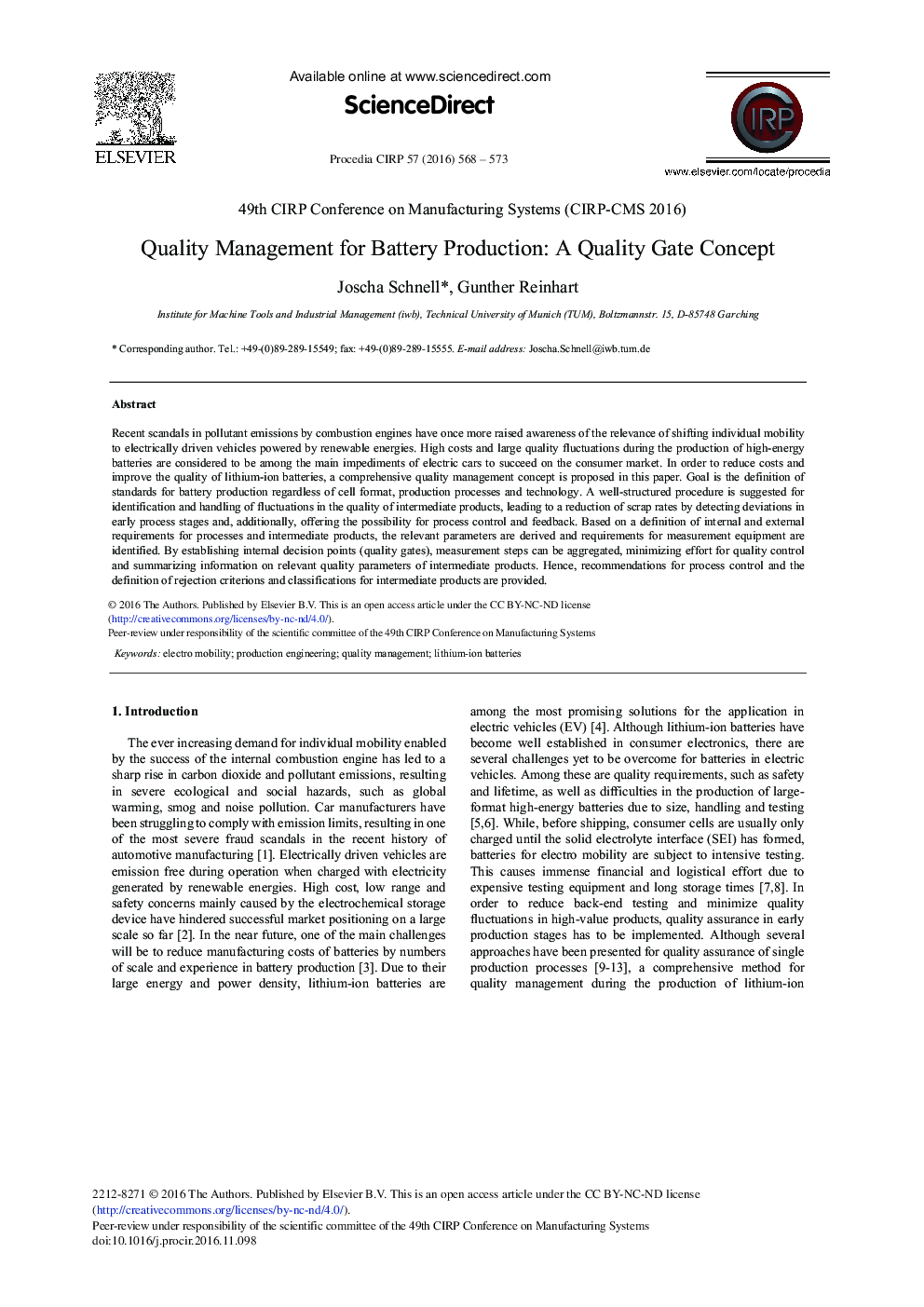| Article ID | Journal | Published Year | Pages | File Type |
|---|---|---|---|---|
| 5469881 | Procedia CIRP | 2016 | 6 Pages |
Abstract
Recent scandals in pollutant emissions by combustion engines have once more raised awareness of the relevance of shifting individual mobility to electrically driven vehicles powered by renewable energies. High costs and large quality fluctuations during the production of high-energy batteries are considered to be among the main impediments of electric cars to succeed on the consumer market. In order to reduce costs and improve the quality of lithium-ion batteries, a comprehensive quality management concept is proposed in this paper. Goal is the definition of standards for battery production regardless of cell format, production processes and technology. A well-structured procedure is suggested for identification and handling of fluctuations in the quality of intermediate products, leading to a reduction of scrap rates by detecting deviations in early process stages and, additionally, offering the possibility for process control and feedback. Based on a definition of internal and external requirements for processes and intermediate products, the relevant parameters are derived and requirements for measurement equipment are identified. By establishing internal decision points (quality gates), measurement steps can be aggregated, minimizing effort for quality control and summarizing information on relevant quality parameters of intermediate products. Hence, recommendations for process control and the definition of rejection criterions and classifications for intermediate products are provided.
Related Topics
Physical Sciences and Engineering
Engineering
Industrial and Manufacturing Engineering
Authors
Joscha Schnell, Gunther Reinhart,
